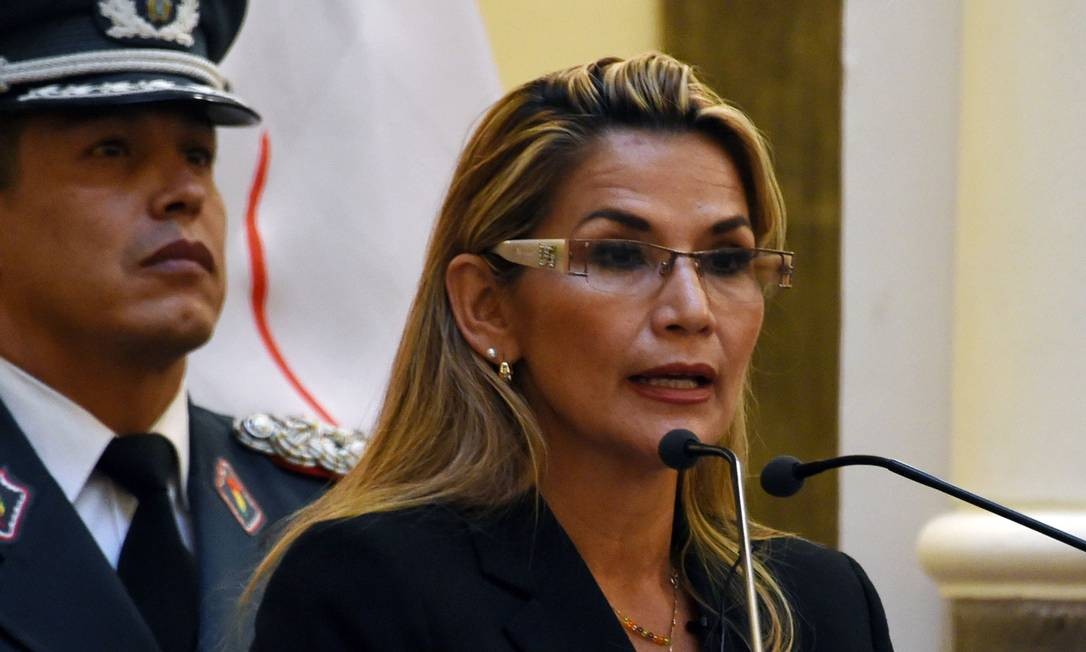RIO DE JANEIRO, BRAZIL – According to supporters of former President Evo Morales and two right wing presidential candidates, the de facto government of Bolivia under President Jeanine Áñez is pursuing new paths in the conflict with former ruling party Movement for Socialism (MAS): Last Friday, the authorities in the South American country brought criminal charges against ex-president Evo Morales before the International Criminal Court (ICC) in The Hague.
The charges consist of crimes against humanity. Specifically, the case concerns the political strikes in August. The Áñez government, which recently received an highly critical report from the UN Commission on Human Rights, accuses Morales and union leader Juan Carlos Huarachi of being responsible for 40 deaths by instigating protests and roadblocks. The roadblocks are reported to have prevented oxygen supplies to treat Covid-19 patients from arriving on time, resulting in the deaths of several patients.
Government official José María Cabrera accused the protesters of “inhuman acts” and “extreme cruelty” and sees a large-scale conspiracy by Morales and Huarachi in play, whom he accuses of being the leaders of a “criminal organization”.

The general strike came in reaction to the one-month deferral of the presidential and parliamentary elections by the interim government, which has been ruling without a democratic mandate for almost a year.
Evo Morales himself voiced his indignation and tweeted from his exile in Argentina: “The de facto government of Bolivia, condemned by the UN, CIDH [Inter-American Commission on Human Rights], NGOs, Harvard observers and leading newspapers for massacres and human rights crimes, is now accusing me and some popular leaders at the ICC of defending democracy.”
The proposed trial before the ICC is one of several efforts by the Áñez government in the run-up to the elections now scheduled for October 18th. It recently became known that the government had commissioned CLS Strategies, a company with state funds, to create fake profiles on Facebook to spread propaganda in its favor. This occurred in December 2019, in the aftermath of the November coup.
Last week, the Washington Post reported that Facebook had deleted 133 fake profiles that had been created in the United States to provide public support for Áñez’s policies.
The president of the Bolivian Chamber of Deputies, Sergio Choque, opened an investigation into the executive branch. “We have to use the instruments of the legislature: First we demand a report from the president and then, if necessary, we demand a hearing,” said the MAS politician.
According to Facebook, the Bolivian state invested US$3.6 million in the campaign. Choque called on Áñez to return the money to the country and called the fake news strategy “despicable”.
Looking ahead to the upcoming elections, Samuel Doria Medina, vice presidential candidate of Áñez’s political alliance Juntos (Together), recently proposed that all right-wing parties should join together in an “anti-MAS alliance” to support the candidacy of the de facto president. Doria Medina explained that Áñez has shown that she can bring peace to the country and overcome the crisis.
The call for unity, however, was met with criticism from the other principal candidates. Luis Fernando Camacho, president of the far-right party Creemos (We Believe) reiterated his independence: “We will not form an alliance and we will not withdraw our candidacy” he continued on Twitter, accusing the de facto government of corruption and secret ties to MAS.
Ex-president Carlos Mesa, who is also running for election, attacked Áñez’s leadership: “Unfortunately, the current government is behaving the same way [as MAS used to] in the election process: it uses state funds […] as if they were its own and exploits them for its political interests.”

